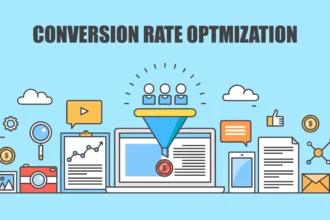Blog Post Length in 2025: Does Size Still Matter for SEO?
Search engines seem to change their rules all the time. Every new update makes content creators ask, “How long should my posts be?” In 2025, the big question remains: does the length of your blog post still matter for SEO?
- Blog Post Length in 2025: Does Size Still Matter for SEO?
Understanding how content length affects your search rankings can help you craft better content. It’s more important than ever to balance quality, size, and user needs. Let’s dig into how content length has evolved and what it means today.
The Evolution of Content Length in SEO
A Look Back at Content Length Trends
Years ago, long-form content ruled. Articles that ran over 2,000 words earned high rankings in search results. The idea was simple: longer content meant more keywords and more info for users. Websites filled pages with detailed guides and comprehensive posts.
But things didn’t stay the same. As the web expanded, so did the needs of users and search engines. Shorter, punchier content started to gain ground, especially on mobile devices.
Search Engine Algorithm Changes
Google has rolled out many updates that change how content gets ranked. Updates like BERT and MUM focus on understanding what users really want, not just keywords. They look at naturally written content and context rather than sheer word count.
AI and machine learning make Google smarter. Today, Google evaluates content quality, relevance, and user signals instead of just counting words. Content that’s clear and helpful can rank well, no matter its size.
How Users Consume Content in 2025
People want quick answers. On average, time spent on a page isn’t what it used to be. Many prefer short, clear responses for simple questions. But when they need in-depth info, long content still rules—think detailed tutorials or industry reports.
The key is matching content to the audience. A tech blog might need extensive reviews, while a recipe or news update benefits from brevity.
Does Bigger Always Mean Better? Debunking the Length Myth
Quality Over Quantity
Having a lot of words doesn’t guarantee rankings. Length won’t save poor content. Well-structured, insightful content beats fluff every time. Think about Wikipedia—long, detailed, and accurate. But they also focus on quality.
Short “thin” pages can rank poorly. Instead, focus on truly helpful content that covers your topic thoroughly. Well-written content shows expertise, providing real value.
What Does Recent Data Say?
Recent studies show that the top-ranking pages vary widely in length. Some are just a few hundred words, while others stretch over 3,000. The common thread? Relevance and quality.
Case studies reveal that content length is less important than you think. A compelling product page or a concise FAQ often outrank lengthy blog posts if they satisfy user intent.
Tips from Experts
Most SEO pros agree that content should be as long as needed to cover the topic well. They say that trying to hit a certain word count just for rankings can backfire. Instead, aim for natural content that fully answers questions and solves problems.
Industry leaders emphasize quality, readability, and user engagement over simply adding more words.
How Search Engines Judge Content Quality in 2025
Beyond Length: What Matters More?
Search engines today analyze many factors. Relevance, clarity, and user engagement matter more than size. If your content matches user intent and provides clear answers, it will rank higher.
Using semantic search, Google understands what your content means. Making your content fit the searcher’s needs is more effective than stuffing keywords into a long article.
Google’s Focus on User Experience
Google now puts a premium on user experience. Core Web Vitals, like fast load times and mobile-friendly design, influence rankings. Content that loads quickly and is easy to read performs better.
Metrics like bounce rate and dwell time show if users find your content helpful. If they stay longer and explore more, it signals quality—regardless of length.
The Role of AI and Content Tools
AI tools help creators improve readability and optimize for ranking. From grammar checkers to content analysis, these tools ensure your content hits the right notes. They assess whether the content is useful, relevant, and engaging—bushing aside just word count.
Content Length Strategies for Different Goals
Building Authority with E-A-T
When aiming to establish authority, longer content often works. It shows depth and expertise. But length alone doesn’t do the trick. You need to balance detail with clarity, so your audience isn’t overwhelmed.
For Conversions and Lead Generation
Short, punchy content works better for calls to action. Landing pages or product descriptions should be quick and persuasive. Content length here is strategic—enough to inform but short enough not to lose attention.
Niche versus Broader Topics
A specialized niche often requires longer, detailed content. A broad industry topic can sometimes be covered effectively in fewer words if you focus on key points. Adjust your content length according to the topic and audience.
Practical Tips to Optimize Content Length in 2025
- Do thorough research on your audience and keywords.
- Cover your topic completely—no fluff.
- Use analytics to track what works.
- Incorporate images, videos, and interactive tools to boost engagement.
- Keep your content fresh and update it regularly.
- Remember: quality beats length every time.
Conclusion
Content length still plays a role in SEO, but it’s no longer the main factor. Today, what counts most is how well your content addresses user needs and matches their intent. Larger posts can rank high if they’re comprehensive and well-structured. But a short, clear answer can outperform a lengthy article if it satisfies searchers quickly.
The key is to be strategic. Focus on creating helpful, engaging content tailored to your audience. Test different lengths, analyze performance, and adapt as needed. Staying flexible will help you stay ahead in SEO in 2025.
Make your content work smarter, not just longer. Your audience and rankings will thank you.
Image source: Bloggingguide.com






